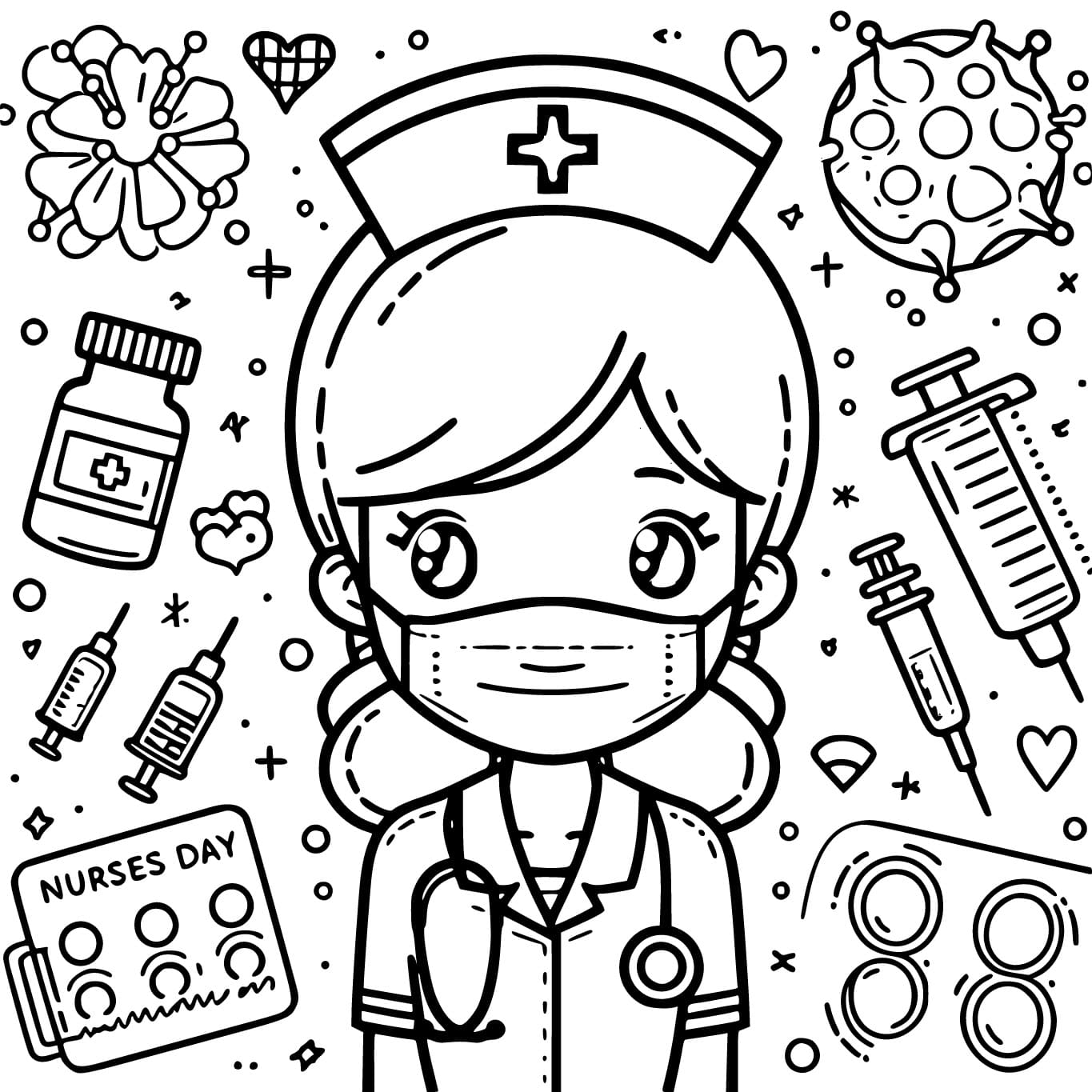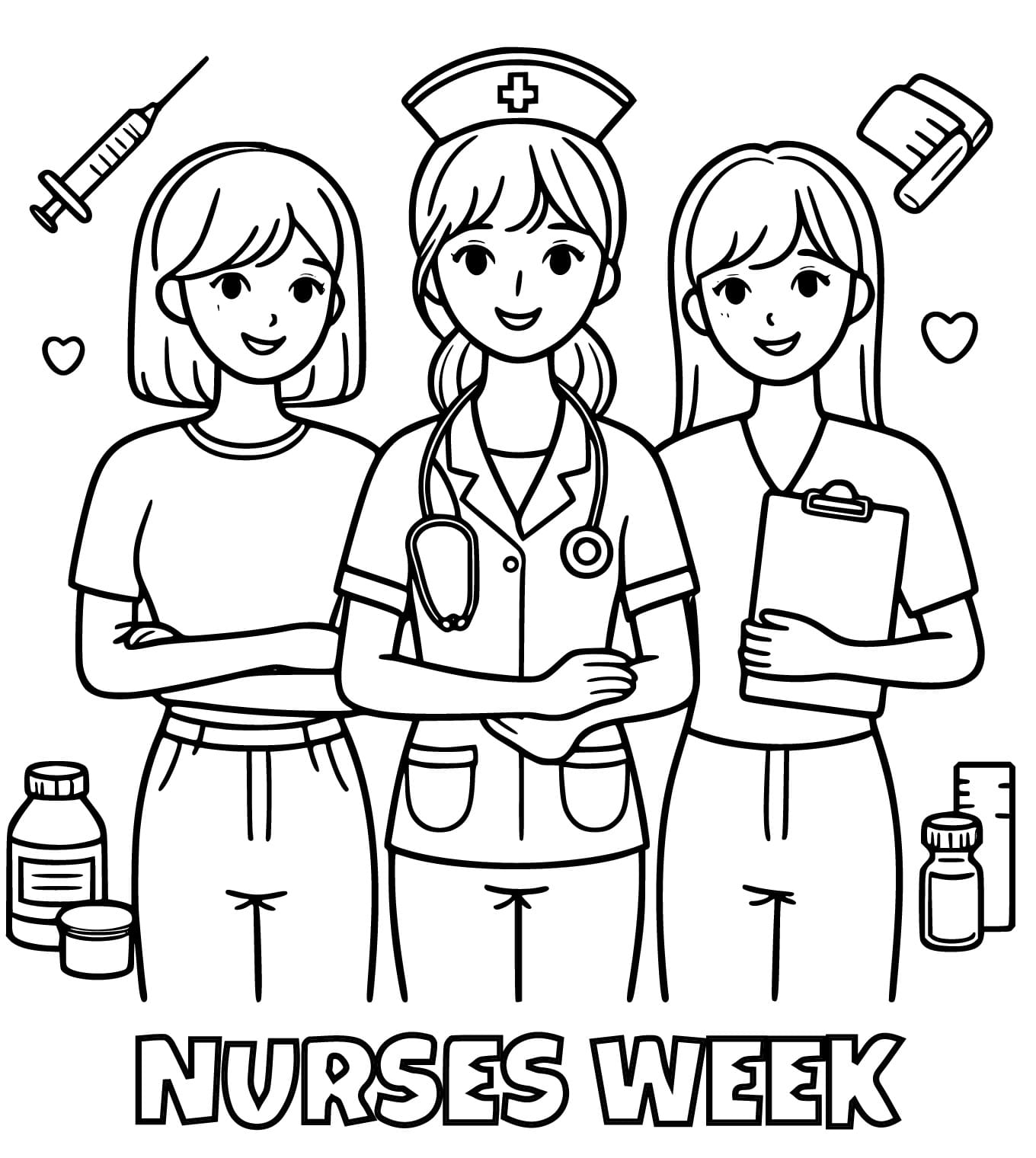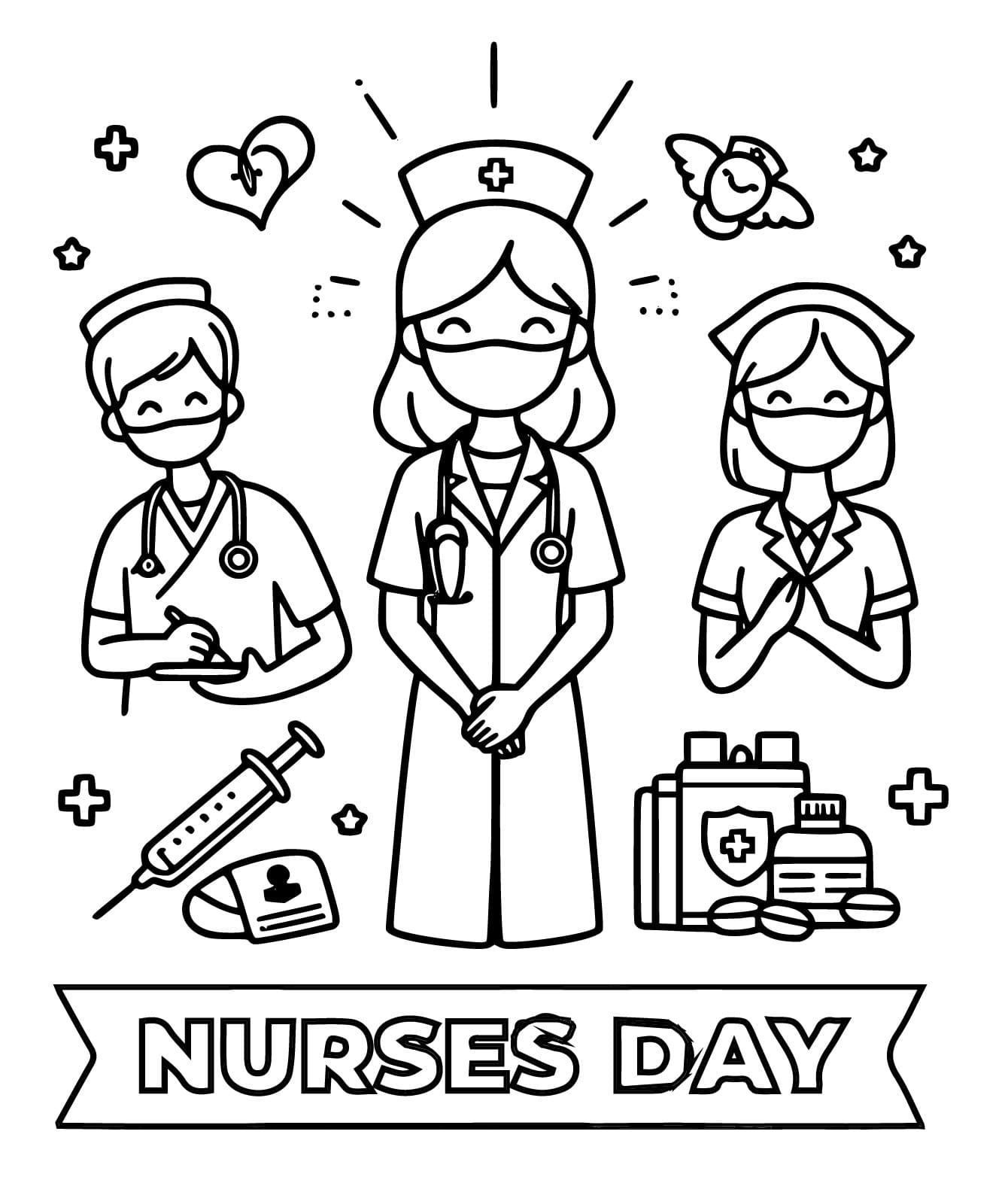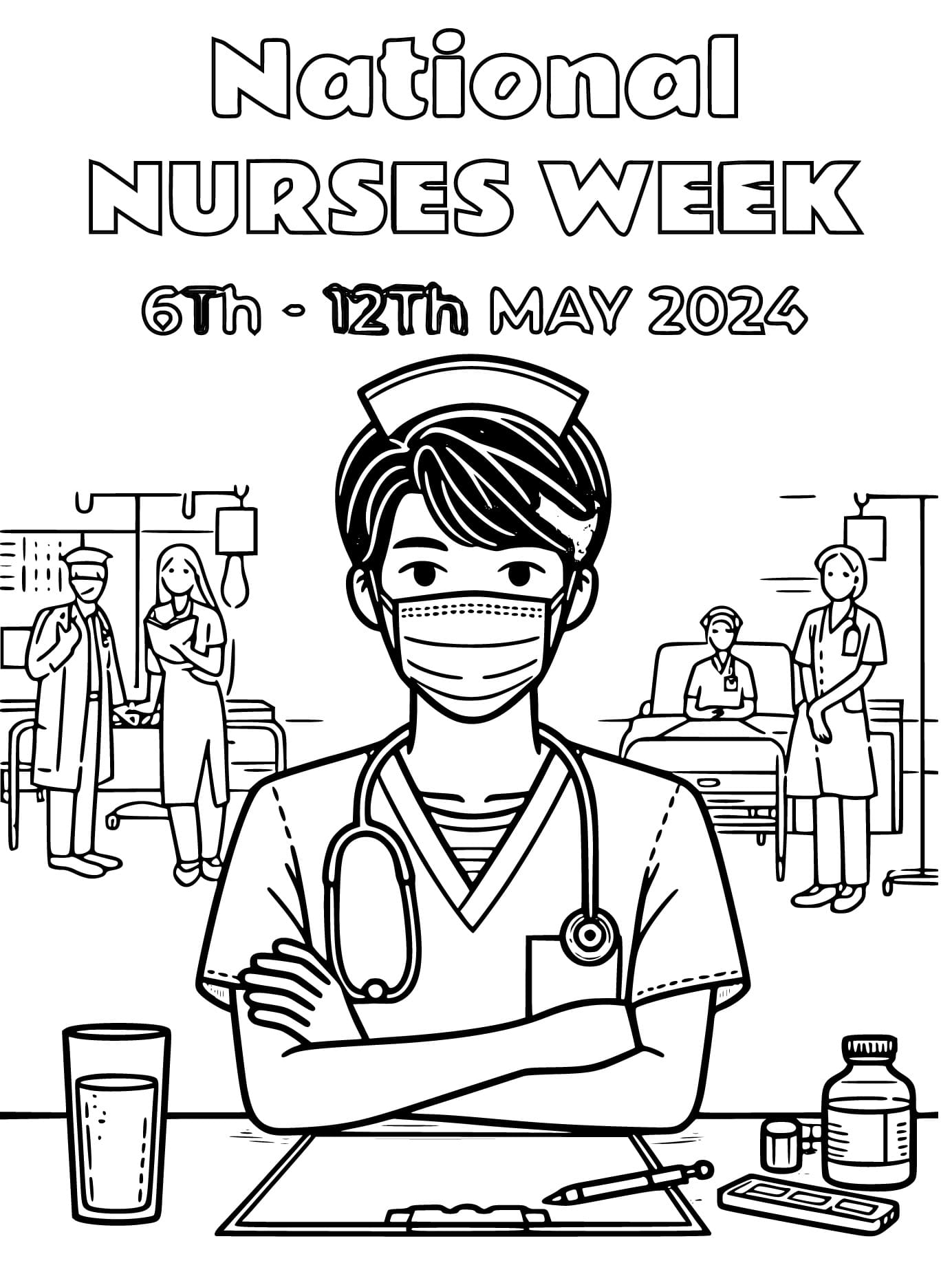Nurses: The Pillars Of Healthcare" - a profound statement that captures the essence of their indispensable role in the healthcare system. Nurses, the backbone of healthcare, are the cornerstone upon which the well-being of patients and the smooth functioning of healthcare facilities rest.
Editor's Notes: "Nurses: The Pillars Of Healthcare" published today delve into the critical significance of nurses in healthcare, exploring their multifaceted contributions and the profound impact they have on patient outcomes and the overall healthcare landscape.
Through extensive analysis and meticulous research, we have meticulously crafted this comprehensive guide to shed light on the pivotal role of nurses. By delving into their diverse responsibilities, from providing direct patient care to coordinating medical teams, we aim to provide a nuanced understanding of their invaluable contributions to the healthcare ecosystem.
Key Differences: Nurses vs. Other Healthcare Professionals
To fully grasp the unique and indispensable role of nurses, it is essential to distinguish them from other healthcare professionals. The following table highlights key differences:
| Criteria | Nurses | Other Healthcare Professionals |
|---|---|---|
| Scope of Practice | Focus on direct patient care, monitoring, and education | Specialized in specific areas, such as surgery, radiology, or therapy |
| Education | Associate's degree, Bachelor's degree, or Master's degree in nursing | Varies depending on the profession, typically requiring a medical degree or advanced training |
| Licensure | Licensed by state nursing boards | Licensed or certified by relevant regulatory bodies |

GDPR - Excel Healthcare - Source www.excelhealthcare.com
Transition to main article topics
FAQ
Nurses are the backbone of healthcare, providing essential care and support to patients and families. They are highly trained professionals with a wealth of knowledge and expertise. Here are answers to some frequently asked questions about nurses and their role in healthcare:

Nurses Day Printable coloring page - Download, Print or Color Online - Source coloringlib.com
Question 1: What is the role of a nurse?
Nurses provide a wide range of services, including direct patient care, assessing patient needs, administering medication, monitoring vital signs, and providing education and support to patients and families. They work in a variety of settings, including hospitals, clinics, nursing homes, and schools.
Question 2: What are the different types of nurses?
There are many different types of nurses, each with their own area of specialization. Some common types of nurses include registered nurses (RNs), licensed practical nurses (LPNs), nurse practitioners (NPs), and clinical nurse specialists (CNSs). RNs have the most advanced training and are responsible for a wide range of patient care activities. LPNs provide basic nursing care under the supervision of an RN. NPs are advanced practice nurses who can diagnose and treat illnesses and prescribe medication. CNSs are nurses with advanced training in a specific area of healthcare, such as oncology or cardiology.
Question 3: What is the education required to become a nurse?
To become a registered nurse, you must complete an accredited nursing program and pass the National Council Licensure Examination (NCLEX-RN). LPNs must complete an accredited practical nursing program and pass the NCLEX-PN exam. NPs and CNSs must complete a master's or doctoral degree in nursing and pass a national certification exam.
Question 4: What are the job prospects for nurses?
The job outlook for nurses is excellent. The U.S. Bureau of Labor Statistics projects that the demand for nurses will grow by 9% from 2020 to 2030, much faster than the average for all occupations. This growth is expected to be driven by the aging population and the increasing number of people with chronic diseases.
Question 5: What is the average salary for a nurse?
The average salary for a registered nurse is $75,330 per year. The average salary for an LPN is $48,820 per year. The average salary for an NP is $111,680 per year. The average salary for a CNS is $98,180 per year.
Question 6: What are the benefits of being a nurse?
There are many benefits to being a nurse, including:
- Job security and stability
- Competitive salary and benefits
- Opportunities for advancement
- The chance to make a difference in the lives of others
Nursing is a rewarding and challenging career that offers a wide range of opportunities. Nurses play a vital role in the healthcare system and are essential to the well-being of patients and families.
Continued...
Tips
Nursing is a demanding and rewarding profession. Nurses: The Pillars Of Healthcare play a vital role in patient care, providing physical, emotional, and social support. They are advocates for patients, ensuring their needs are met and their voices are heard.

Printable Nurses Day coloring page - Download, Print or Color Online - Source coloringlib.com
Tip 1: Practice Evidence-Based Care: Utilize the latest research and best practices to inform patient care decisions. This ensures that patients receive optimal treatment and improves outcomes.
Tip 2: Enhance Communication Skills: Effective communication is crucial for building rapport with patients, families, and other healthcare professionals. Clear and concise communication fosters trust and ensures that essential information is shared accurately.
Tip 3: Prioritize Patient Advocacy: Nurses: The Pillars Of Healthcare are patient advocates, ensuring their rights and needs are respected. They provide emotional support and guidance, empowering patients to make informed decisions about their care.
Tip 4: Embrace Technology: Utilize technology to enhance patient care. Electronic health records, telehealth platforms, and mobile apps can improve efficiency, communication, and access to healthcare services.
Tip 5: Foster Interdisciplinary Collaboration: Healthcare is a team effort. Collaborating with physicians, social workers, and other healthcare professionals provides a comprehensive and coordinated approach to patient care, ensuring that all aspects of a patient's needs are addressed.
Tip 6: Practice Cultural Sensitivity: Recognize and respect the diverse cultural backgrounds of patients. Understanding different cultural beliefs, values, and practices ensures that care is provided in a sensitive and inclusive manner.
Tip 7: Continuously Learn and Grow: Nursing is an ever-evolving field. Stay up-to-date with the latest advances in medical knowledge and technology through continuing education and professional development opportunities.
Tip 8: Take Care of Yourself: Nursing can be a physically and emotionally challenging profesión. Prioritize self-care to maintain physical and mental well-being. Engage in stress-reducing activities, seek support when needed, and maintain a healthy work-life balance.
By implementing these tips, Nurses: The Pillars Of Healthcare can continue to provide exceptional care, improve patient outcomes, and positively impact the healthcare system.
Nurses: The Pillars Of Healthcare
Nurses stand as the cornerstone of modern healthcare, fulfilling multifaceted roles that underpin the very fabric of patient care. Their contributions encompass a diverse array of aspects, each indispensable in ensuring optimal health outcomes.
- Patient Advocates: Nurses champion the rights and well-being of patients, safeguarding their interests in all healthcare settings.
- Clinical Caregivers: They provide a wide range of medical and nursing interventions, administering medications, monitoring vital signs, and implementing treatment plans.
- Educators: Nurses play a crucial role in educating patients, families, and communities about health conditions, medications, and self-care practices.
- Researchers: Nurses actively engage in research and evidence-based practice, contributing to the advancement of nursing knowledge and patient care.
- Leaders: Nurses assume leadership roles in various healthcare settings, managing teams, developing policies, and advocating for quality improvement.
- Patient Navigators: They provide guidance and support to patients as they navigate the complexities of the healthcare system, ensuring timely access to appropriate care.

Nurses Week coloring page - Download, Print or Color Online for Free - Source coloringlib.com
These diverse aspects of nursing collectively define the profession's essential role in healthcare. Nurses advocate for patient rights, provide compassionate and skilled care, educate the public, advance the field through research, lead healthcare teams, and guide patients through the healthcare system. Their multifaceted contributions make them indispensable pillars of healthcare, enhancing patient outcomes and shaping the future of medicine.

Printable Nurses Day coloring page - Download, Print or Color Online - Source coloringlib.com
Nurses: The Pillars Of Healthcare
Nurses play a pivotal role in the healthcare system, serving as the cornerstone of patient care. Their tireless efforts and dedication form the foundation upon which quality healthcare is delivered. As the backbone of the medical field, nurses provide comprehensive care, encompassing physical, emotional, and psychological support for patients and their families.

Nurses Week coloring page - Download, Print or Color Online for Free - Source coloringlib.com
The contributions of nurses extend far beyond bedside care. They are instrumental in health promotion, disease prevention, and patient education. Nurses act as advocates for their patients, ensuring their voices are heard and their needs are met. Furthermore, they collaborate with other healthcare professionals to develop and implement treatment plans, ensuring continuity of care.
The importance of nurses is undeniable, as they bridge the gap between patients and the healthcare system. Their knowledge, skills, and compassion play a crucial role in improving patient outcomes, reducing healthcare costs, and enhancing the overall quality of life for individuals and communities.
Table: The Role of Nurses in Healthcare
| Role | Description |
|---|---|
| Patient Care | Providing medical and nursing care, monitoring patients' conditions, and administering medications. |
| Health Promotion | Educating patients on healthy lifestyles, disease prevention, and self-care. |
| Advocacy | Representing patients' interests, ensuring their rights are respected, and supporting their decision-making. |
| Collaboration | Working alongside physicians, pharmacists, and other healthcare professionals to provide comprehensive care. |
| Research and Innovation | Participating in research studies and implementing new practices to improve patient outcomes. |
Conclusion
In conclusion, nurses are the backbone of healthcare, providing indispensable care and support to patients and their families. Their contributions are vast, ranging from providing medical care to advocating for patients' rights. As the demand for healthcare services continues to grow, the role of nurses will become increasingly crucial. By investing in nurses, we invest in the health and well-being of our communities.